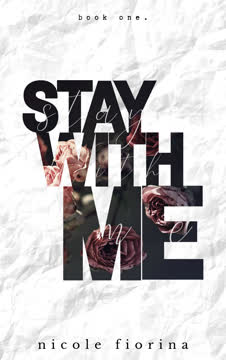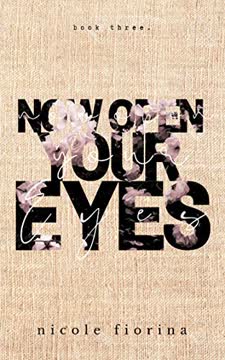Plot Summary
Broken Girl, New Prison
Mia Jett, a troubled American teen, is sent to Dolor, a reformatory college in the UK, after a string of reckless acts and emotional detachment. Her family, unable to handle her, ships her off, hoping the institution will "fix" her. Mia, numb and emotionally detached due to a traumatic past she can't fully remember, arrives at Dolor expecting nothing but more isolation. The school is a fortress for the broken, the addicted, and the unwanted, and Mia's only plan is to keep her head down and survive.
Dolor's Unforgiving Walls
Upon arrival, Mia is stripped of her belongings, subjected to invasive searches, and introduced to the strict, almost prison-like rules of Dolor. She meets Dean Lynch, who makes it clear that any misstep will land her in solitary or worse. Her first encounters with other students—Jake, Alicia, and the enigmatic Ollie—are prickly, but they hint at the possibility of connection. Mia's dorm is bare, her future uncertain, and her heart still locked away.
Meeting Ollie: Sparks Ignite
Mia's first real spark of feeling comes when she meets Ollie Masters, a British student with striking green eyes and a poetic soul. Their chemistry is immediate and electric, but both are damaged in different ways. Ollie is drawn to Mia's darkness, while Mia is both intrigued and terrified by Ollie's emotional intensity. Their interactions are charged, and Mia's carefully constructed walls begin to tremble.
The Circle of Misfits
Mia is reluctantly pulled into a group of misfit students: Jake (the persistent friend), Alicia (the tough survivor), Bria (the jealous flirt), Isaac (the addict), and Ollie. The group's midnight gatherings, games, and confessions reveal their traumas and desires. Mia's sharp tongue and emotional detachment both repel and attract the others. Rivalries, especially with Bria, and the group's complicated sexual politics set the stage for future betrayals.
Rules, Games, and Temptations
The students' games—strip or dare, truth or drink—become a way to test boundaries and seek connection. Mia and Ollie's relationship deepens through these games, as they challenge each other's rules about intimacy, sex, and vulnerability. Mia insists that kissing is more intimate than sex, while Ollie wants more than just physical connection. Their push-pull dynamic intensifies, and the group's fragile alliances are tested.
Kisses, Chemistry, and Control
Mia and Ollie's chemistry becomes undeniable, culminating in a passionate, rule-breaking kiss and eventually sex. For Mia, this is both terrifying and liberating—she's never allowed herself to feel this much. Ollie, who suffers from emotional intensity, is all-in, but Mia's trauma and fear of attachment make her pull away. Their relationship is a lifeline for both, but also a source of new pain and risk.
Unraveling: Past and Pain
As Mia grows closer to Ollie, memories of her childhood abuse begin to surface. She experiences panic attacks, rage, and breakdowns, culminating in a violent episode after comforting a younger student, Zeke. The trauma she's buried for years claws its way to the surface, and Mia is forced to confront the truth in therapy: she was sexually abused by her uncle, killed him in self-defense, and lost her mother to suicide. The revelation is both shattering and freeing.
The Power of Touch
Ollie becomes Mia's anchor, using touch, music, and patience to help her process her trauma. Their physical relationship is both a source of healing and a battleground for Mia's fears. Through Ollie's love and the support of her friends, Mia begins to believe she can be more than her past. But the threat of relapse—of losing her feelings and returning to numbness—haunts her.
Love, Lust, and Denial
Mia and Ollie's relationship is threatened by jealousy (from Bria and Maddie), Dolor's anti-relationship culture, and their own insecurities. When Mia learns that Ollie slept with Maddie while on medication, and Maddie returns to Dolor, old wounds are reopened. Meanwhile, Mia's past sexual encounters, including with Oscar (a security guard), come back to haunt her. The couple's love is tested by secrets, misunderstandings, and the ever-present risk of exposure.
Trauma, Truth, and Therapy
In a pivotal group therapy session, Mia finally tells her full story—her abuse, her mother's suicide, her emotional detachment, and her struggle to feel. The confession is raw and cathartic, but it also exposes her to judgment and pity. Ollie, devastated by her pain, promises to love all of her, even the broken parts. The group is forced to confront their own traumas and the ways they hurt each other.
Bria's Betrayal and Oscar's Threat
Bria, jealous and wounded, betrays Mia and Ollie by spreading rumors and aligning with Isaac and Oscar. Oscar, revealed to be Ollie's estranged brother, becomes increasingly predatory toward Mia, using her past and her vulnerability to manipulate and assault her. The threat of sexual violence becomes real and immediate, and Mia is forced to relive her worst nightmares.
Midnight Party, Midnight Danger
At a New Year's Eve party, the group is drugged by Isaac and Oscar. Bria is raped, Mia is nearly assaulted, and Ollie is incapacitated. The aftermath is chaos: Bria is hospitalized, Isaac and Oscar disappear, and Ollie is arrested for crimes he didn't commit. Mia, traumatized and guilt-ridden, must find the strength to fight for justice and for Ollie's freedom.
Shattered Trust, Shattered Self
With Ollie in solitary, Oscar on the run, and her friends scattered, Mia is left alone to pick up the pieces. She is attacked again by Oscar, but manages to record his confession. The experience leaves her physically and emotionally battered, but also determined to clear Ollie's name. The cost of survival is high, and Mia's sense of self is shattered.
The Aftermath: Guilt and Healing
Oscar is finally caught, Isaac is arrested, and Mia's evidence exonerates Ollie. But the damage is done: Bria is traumatized, the group is fractured, and Ollie is changed by his time in solitary and the medication he's forced to take. Mia, with the help of a compassionate police officer and Dr. Conway, begins to see her own strength and the possibility of helping others. Healing is slow, and the scars are deep.
Oscar's Confession, Ollie's Sacrifice
Ollie is released from solitary only after agreeing to take medication that numbs his emotions. He warns Mia that the drugs will change him, and begs her to find a way to bring him back. Their reunion is bittersweet: Ollie is physically present but emotionally absent, his love for Mia buried under chemical indifference. Mia is left to mourn the loss of the boy who saved her.
Solitary, Setbacks, and Medication
Ollie's return is marked by hollow eyes and cold detachment. The medication has stripped him of his emotional intensity, and he tells Mia to stay away. Mia is devastated, but refuses to give up. She clings to the hope that love can overcome even this, and searches for a way to remind Ollie of who he was—and who they were together.
The Return: Hollow Eyes
Mia's attempts to reach Ollie are met with indifference and rejection. The boy who once fought for her now tells her to let him go. Mia is left alone, haunted by memories and the promise that they would always find each other. The story ends with Mia's heart still beating, still hoping, even as Ollie walks away—his light extinguished, but not forgotten.
Desperate Reminders, Desperate Love
The epilogue reveals Ollie's perspective: from the moment he first saw Mia, he knew she was his home, his salvation. Their love was instant, overwhelming, and destined. Despite everything—trauma, betrayal, violence, and loss—their connection endures. The story closes with the hope that, even in darkness, love can find a way back.
Characters
Mia Jett
Mia is a young woman whose life has been shaped by childhood sexual abuse, the loss of her mother to suicide, and years of emotional numbness. She is fiercely intelligent, sarcastic, and self-destructive, using sex and rebellion as armor against pain. At Dolor, she is forced to confront her trauma, her capacity for love, and her fear of vulnerability. Her journey is one of gradual awakening: from numbness to feeling, from isolation to connection, from victim to survivor. Her relationship with Ollie is both a catalyst for healing and a source of new wounds. Mia's development is marked by her struggle to accept love, trust others, and reclaim her agency.
Ollie Masters
Ollie is a British student at Dolor, known for his striking green eyes, tattoos, and poetic soul. He suffers from "emotional intensity," feeling everything too deeply, which has made him both magnetic and vulnerable. His past is marked by neglect, abuse, and betrayal—especially by his brother, Oscar. Ollie is drawn to Mia's darkness, seeing in her a kindred spirit and a chance for redemption. His love for Mia is unconditional, but his own traumas and the institution's rules threaten to destroy him. Forced to take medication that numbs his feelings, Ollie becomes a tragic figure: present but absent, loving but unable to express it. His journey is one of sacrifice, hope, and the desperate need to be seen.
Jake
Jake is an openly gay student who becomes Mia's first real friend at Dolor. He is persistent, funny, and unafraid to call Mia out on her bullshit. Jake's own struggles with family rejection and identity make him empathetic to Mia's pain. He is the glue that holds the group together, often mediating conflicts and providing much-needed levity. Jake's loyalty is unwavering, and his friendship is a lifeline for Mia.
Alicia
Alicia is a foster care survivor who has found a chosen family at Dolor. She is strong, outspoken, and protective of her friends. Alicia's experiences with abandonment and trauma make her both compassionate and guarded. She is often the voice of reason in the group, challenging Mia and others to confront their issues. Alicia's development is tied to her desire for stability and her willingness to fight for those she loves.
Bria
Bria is a complex figure: seductive, competitive, and deeply insecure. She is threatened by Mia's arrival and her connection with Ollie, leading to rivalry and betrayal. Bria's own trauma and need for validation drive her actions, culminating in her victimization at the hands of Isaac and Oscar. Her journey is one of pain, denial, and the slow process of healing.
Isaac
Isaac is a student struggling with addiction and a history of manipulation. He is both a friend and a threat, ultimately betraying the group by drugging and assaulting Bria (and nearly Mia) at Oscar's behest. Isaac's actions are driven by desperation, self-loathing, and a willingness to hurt others to get what he wants. His betrayal is a turning point in the story, exposing the group's vulnerabilities and the dangers lurking within Dolor.
Oscar
Oscar is the primary antagonist: a security guard at Dolor, Ollie's estranged brother, and a sexual predator. He manipulates, threatens, and assaults Mia, using her past and her vulnerability to control her. Oscar's actions are driven by jealousy, cruelty, and a need for power. His betrayal of Ollie is both personal and devastating, and his eventual confession is the key to justice—but not before he leaves lasting scars.
Dean Lynch
Dean Lynch is the head of Dolor, responsible for maintaining order and discipline. He is strict, unsympathetic, and often more concerned with appearances than with the students' well-being. Lynch's decisions—solitary confinement, forced medication, and delayed justice—reflect the institution's failures and the broader system's inability to protect the vulnerable.
Dr. Conway
Dr. Conway is Mia's therapist and one of the few adults who genuinely cares about her. She is tough, insightful, and unafraid to challenge Mia's defenses. Dr. Conway's guidance is crucial to Mia's healing, helping her confront her trauma, accept her feelings, and imagine a future beyond survival. She represents hope, wisdom, and the possibility of change.
Zeke
Zeke is a younger student who rarely speaks, communicating through sign language and silent presence. He becomes a confidant for Mia, a mirror for her own pain, and a symbol of the silent suffering that pervades Dolor. Zeke's friendship is quiet but profound, reminding Mia of the importance of being seen and heard.
Plot Devices
Trauma as Narrative Engine
The story is structured around Mia's gradual confrontation with her childhood abuse, her mother's suicide, and the resulting emotional detachment. Flashbacks, therapy sessions, and panic attacks are used to reveal her past and its impact on her present. The narrative's tension comes from Mia's struggle to feel, to trust, and to love, with Ollie serving as both catalyst and mirror.
Duality of Intimacy and Isolation
The push-pull between intimacy and isolation is central: Mia and Ollie's relationship is a lifeline, but also a source of new pain. The institution's rules, the group's betrayals, and their own fears threaten to destroy what they've built. The story uses physical touch, music, and shared secrets as symbols of healing, while also highlighting the dangers of vulnerability.
Group Dynamics and Betrayal
The group's midnight gatherings, games, and confessions serve as both bonding rituals and battlegrounds. The shifting alliances, jealousies, and betrayals expose the fragility of trust and the ease with which pain can be weaponized. The group's dynamics mirror the larger themes of trauma, survival, and the search for belonging.
Cycles of Healing and Relapse
The narrative structure is cyclical: moments of connection and healing are followed by relapse, betrayal, and renewed trauma. Mia's journey is not a straight line, but a series of advances and retreats, breakthroughs and breakdowns. The story uses repetition—of games, therapy, and rituals—to underscore the difficulty of lasting change.
Medication and Emotional Numbing
Ollie's forced medication, which strips him of his emotional intensity and love for Mia, serves as a powerful metaphor for the dangers of numbing pain rather than confronting it. The story explores the cost of survival, the risk of losing oneself, and the desperate need for reminders of who we are.
Symbolism: Music, Touch, and Memory
Music, physical touch, and shared memories are recurring symbols of hope and connection. Mia's ability to play piano, Ollie's poetry, and their rituals of touch become ways to access feeling and reclaim agency. The story uses these sensory experiences to bridge the gap between numbness and life.
Analysis
Stay with Me is a raw, unflinching exploration of trauma, survival, and the redemptive power of love. Nicole Fiorina crafts a narrative that refuses easy answers, instead embracing the messy, nonlinear reality of healing. Through Mia and Ollie, the novel interrogates the ways in which pain shapes identity, the risks and rewards of vulnerability, and the necessity of being seen and heard. The story is both a romance and a survival tale, using the microcosm of Dolor to examine broader issues of abuse, institutional failure, and the search for belonging. Its lessons are hard-won: that healing is possible but never simple; that love can be both a balm and a battlefield; and that, even in the darkest places, hope endures. The book's ultimate message is one of resilience: that brokenness is not the end, and that, with courage and connection, we can find our way back to ourselves—and to each other.
Last updated:
Review Summary
Stay with Me receives mixed reviews, with many praising its emotional depth and unique characters. Readers love Ollie's sweet nature and Mia's character development. The intense romance and poetic writing style captivate many, though some criticize the handling of mental health topics and insta-love trope. Trigger warnings are emphasized for sensitive content. While some find it melodramatic or unrealistic, others consider it a powerful, unforgettable story that leaves them eager for the sequel.
Stay with Me Series
Similar Books
Download PDF
Download EPUB
.epub digital book format is ideal for reading ebooks on phones, tablets, and e-readers.













